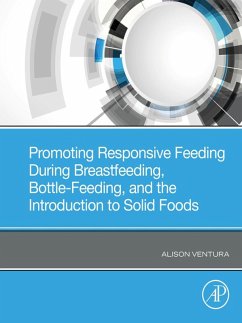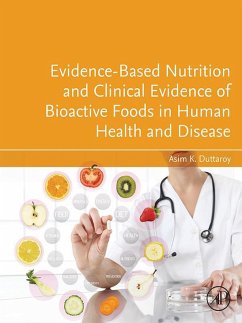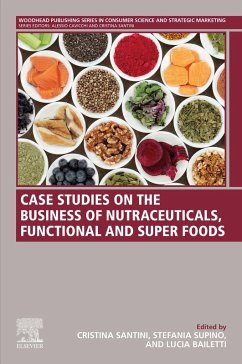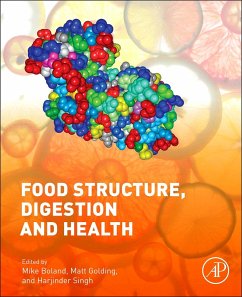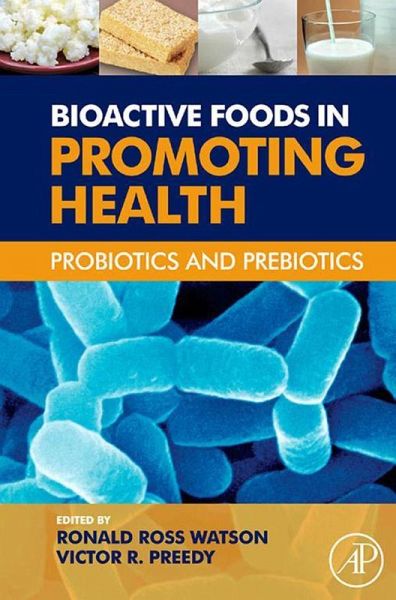
Bioactive Foods in Promoting Health (eBook, ePUB)
Probiotics and Prebiotics

PAYBACK Punkte
48 °P sammeln!
Bioactive Foods in Promoting Health: Probiotics and Prebiotics brings together experts working on the different aspects of supplementation, foods, and bacterial preparations, in health promotion and disease prevention, to provide current scientific information, as well as providing a framework upon which to build clinical disease treatment studies. Since common dietary bacterial preparations are over-the-counter and readily available, this book will be useful to the growing nutrition, food science, and natural product community that will use it as a resource in identifying dietary behavioral m...
Bioactive Foods in Promoting Health: Probiotics and Prebiotics brings together experts working on the different aspects of supplementation, foods, and bacterial preparations, in health promotion and disease prevention, to provide current scientific information, as well as providing a framework upon which to build clinical disease treatment studies. Since common dietary bacterial preparations are over-the-counter and readily available, this book will be useful to the growing nutrition, food science, and natural product community that will use it as a resource in identifying dietary behavioral modifications in pursuit of improved health as well as for treatment of specific disease, as it focuses on the growing body of knowledge of the role of various bacteria in reducing disease risk and disease. Probiotics are now a multi-billion-dollar, dietary supplement business which is built upon extremely little research data. In order to follow the 1994 ruling, the U.S. Food and Drug Administration with the support of Congress is currently pushing this industry to base its claims and products on scientific research. Research as shown that dietary habits need to be altered for most people whether for continued or improved good health. The conclusions and recommendations from the various chapters in this book will provide a basis for those important factors of change by industry with new uses. Animal studies and early clinical ones will lead to new uses and studies. Particularly the cutting edge experimental and clinical studies from Europe will provide novel approaches to clinical uses through their innovative new studies. - Heavy emphasis on clinical applications (benefits and/or lack thereof) as well as future biomedical therapeutic uses identified in animal model studies - Focused on therapies and data supporting them for application in clinical medicine as complementary and alternative medicines - Key insights into gut flora and the potential health benefits thereof - Health scientists and nutritionists will use this information to map out key areas of research. Food scientists will use it in product development - Information on pre-and probiotics as important sources of micro-and macronutrients - Aids in the development of methods of bio-modification of dietary plant molecules for health promotion - Coverage of a broad range of bacterial consituents - Nutritionists will use the information to identify which of these constituents should be used as dietary supplements based on health status of an individual - Science-based information on the health promoting characteristics of pre-and probiotics - Provides defense of food selections for individual consumption based on health needs and current status - Diverse international authoring team experienced in studying prebiotics and probiotics for medical practice - Unusally broad range of experiences and newly completed clinical and animal studies provides extended access to latest information
Dieser Download kann aus rechtlichen Gründen nur mit Rechnungsadresse in A, B, BG, CY, CZ, D, DK, EW, E, FIN, F, GR, HR, H, IRL, I, LT, L, LR, M, NL, PL, P, R, S, SLO, SK ausgeliefert werden.





